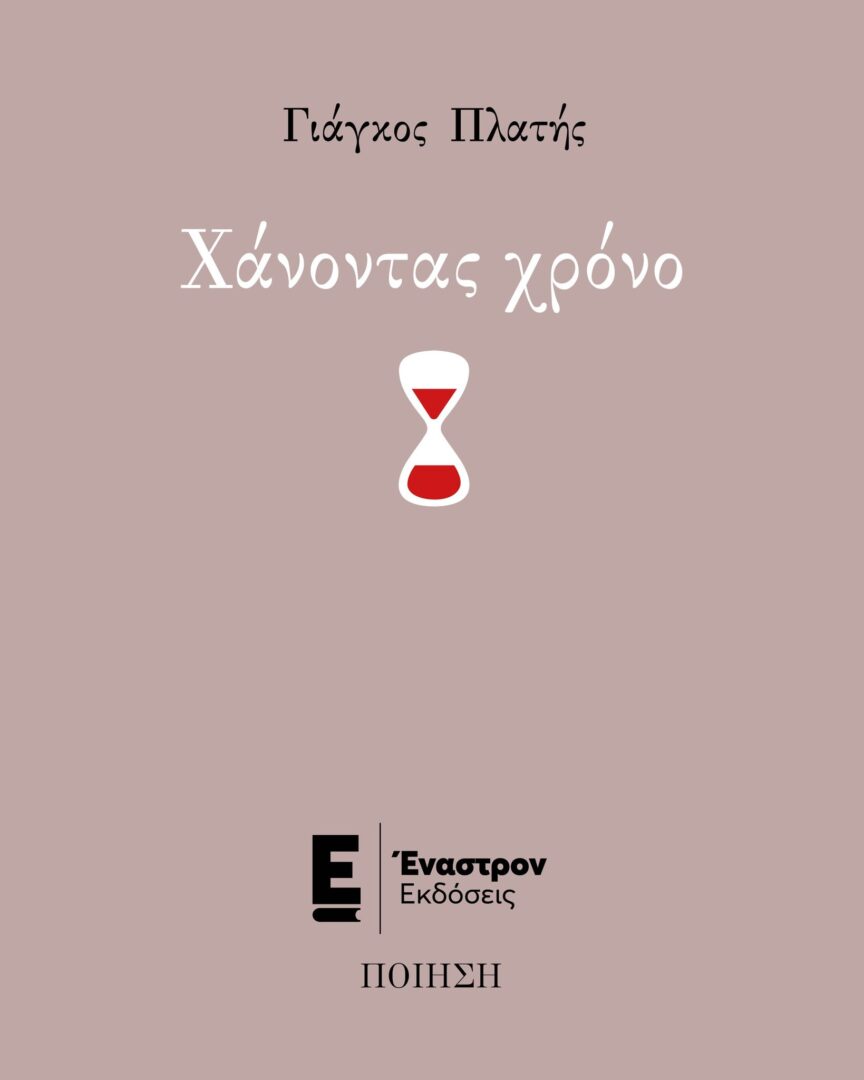Yagos Platis was born in 1993. He studied Sociology at Panteion University and had a Master’s Degree in Media and Communications (City University of London). He is working as an editor and a communication specialist. He is also a musician and a dj. He lives in Athens.

Your latest writing venture Xάνοντας χρόνο [Losing Time] was recently published by Enastron. Could you tell us a few things about the book and its title?
I have to admit that there is no greater motivation than the usual one, which is expression. Furthermore, the book is a call to those who move forward while having poetry or any art by their side, listening to their inner voice.
As for the title, time has many aspects in these poems. In the first place, inevitably we all face the fear of death and loss when we think about time. However, the book not only deals with physical death but also with the mental one, the one that happens while we live and can be either refreshing or destructive.
Secondly, we all “lose time” when we spend it on things that do not match our own perceptions. This issue is deeply rooted in society’s lifestyle. Τhis is why dealing with the most essential side of ourselves is often considered unworthy by the majority of people. Writing a book is one of these essential occupations, let alone writing a poetry book, especially in a country where there is no substantial support for writers and artists.
Time is one of the recurrent themes in your poetry. How is the notion of time in its multifaceted aspects poetically expressed in your work?
Time has a crucial role in my poetry. It looks like a person, an observer, dressed up in many forms. This person is not always kind and gentle, yet it is up to us how we deal with it. We could shake hands but we could also spend a lifetime arguing. We always say that time is a healer, however I think time looks more like a teacher.
There is an existential anguish permeating the poems against an unhospitable urban landscape. Where does the personal meet the social and the political in your writings?
Personal struggle is undoubtedly related to social circumstances. I think that the negative side of the Athenian urban landscape was mainly revealed when the crisis began and has not changed at all. Actually, I think that the perception of cities as unhospitable landscapes has more to do with the failures of modern society within an international framework.
Nevertheless, to be honest, when I return to the works of my favorite artists, when I read books by scientists who lived long ago, when I read interviews by people who now belong to the past, I always come back to the same conclusion. The multifaceted crisis we are experiencing both at a national and global level these days has its roots in the past; yet, it was often hard to see, especially during eras that were hypocritically regarded as golden.
As I am born in 1993, I belong to a generation that focuses more on personal evolution since all of us had to face the repercussions of the Greek crisis and the pandemic, which was shocking and will follow us forever. Yet, as inhospitable as a place might be, no matter how many difficulties we face, this awareness can lead to personal freedom and maybe there is no greater political act than that.

How does literature converse with its surrounding environment? Could literature be used to imagine what could be radically different realities?
Even though literature should be used to create new realities, what causes me great pessimism is the role that literature has at present. Books do not longer play an important role in daily life, not only in Greece, but worldwide, with some exceptions such as France and the Scandinavian countries. Therefore, the role of readers and small book – oriented communities is probably more important than ever.
What about language? What role does language play in your writings?
Language is like an instrument that creates stories stimulating the senses and evoking memories, creating an environment that can at any time be lost and recreated. Language is a set of symbols that are sometimes not used literally but always help create a dream world not far from reality.
How do contemporary Greek writers converse with global literary trends? Where does the local/ national meet the universal?
Globalization’s trends are so widespread and inseparable through the internet, specifically through social media, that it is impossible for a writer to remain unaffected by what is happening beyond borders. Thus, inspiration might also rise subconsciously, since an artist can be influenced even by elements of different taste, when exposure to them is constant.
What I like about contemporary writers is the fact that they carve their paths by following new ways of expression, liberated from their predecessors. They are seeking their truth by trusting their own voices and their own experiences. For example, I really enjoyed the novel Perfection by Italian writer Vincenzo Latronico and The noise of facts, a collection of poems by Greek poet Dimitris Glifos.
*Interview by Athina Rossoglou
TAGS: LITERATURE & BOOKS | READING GREECE














